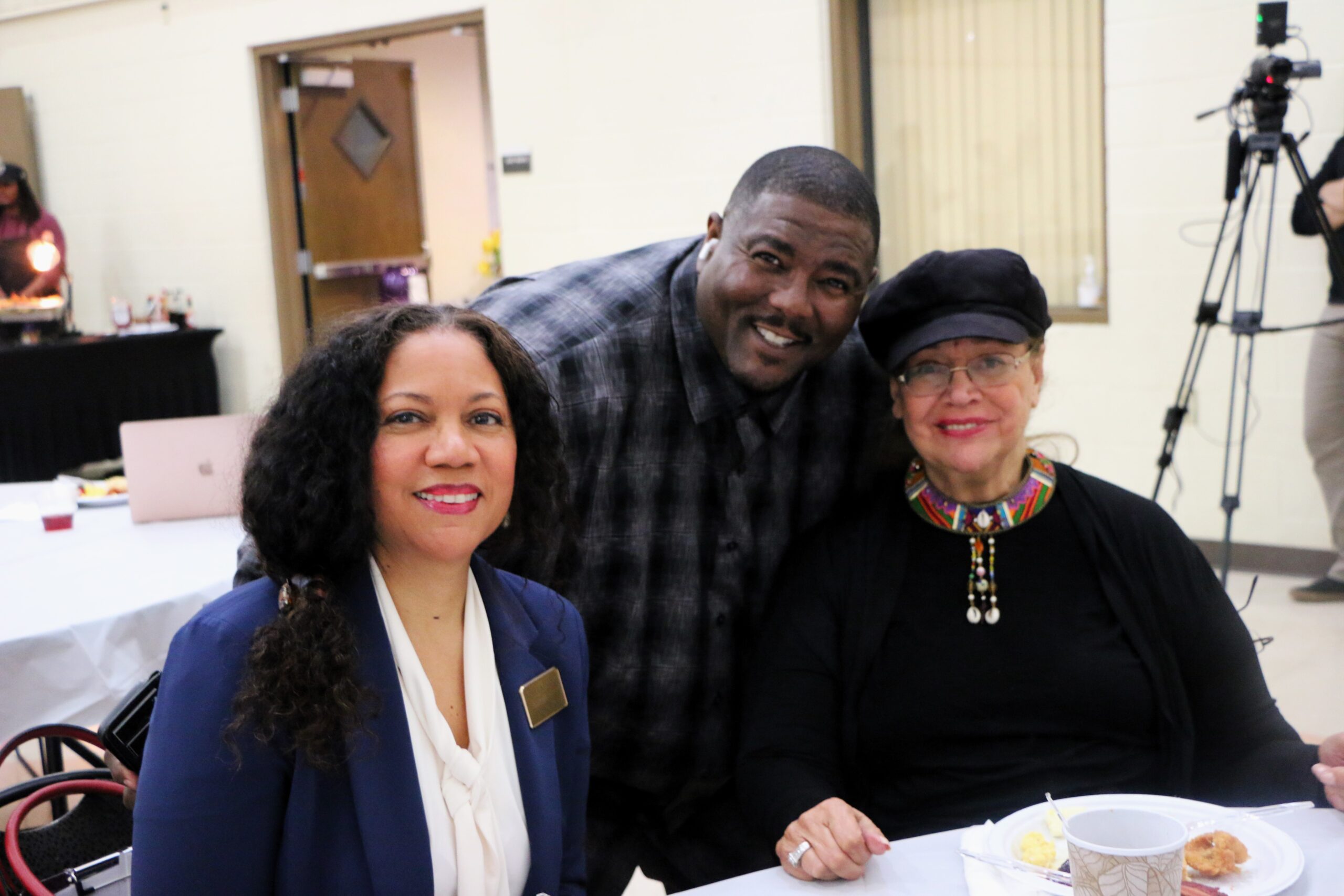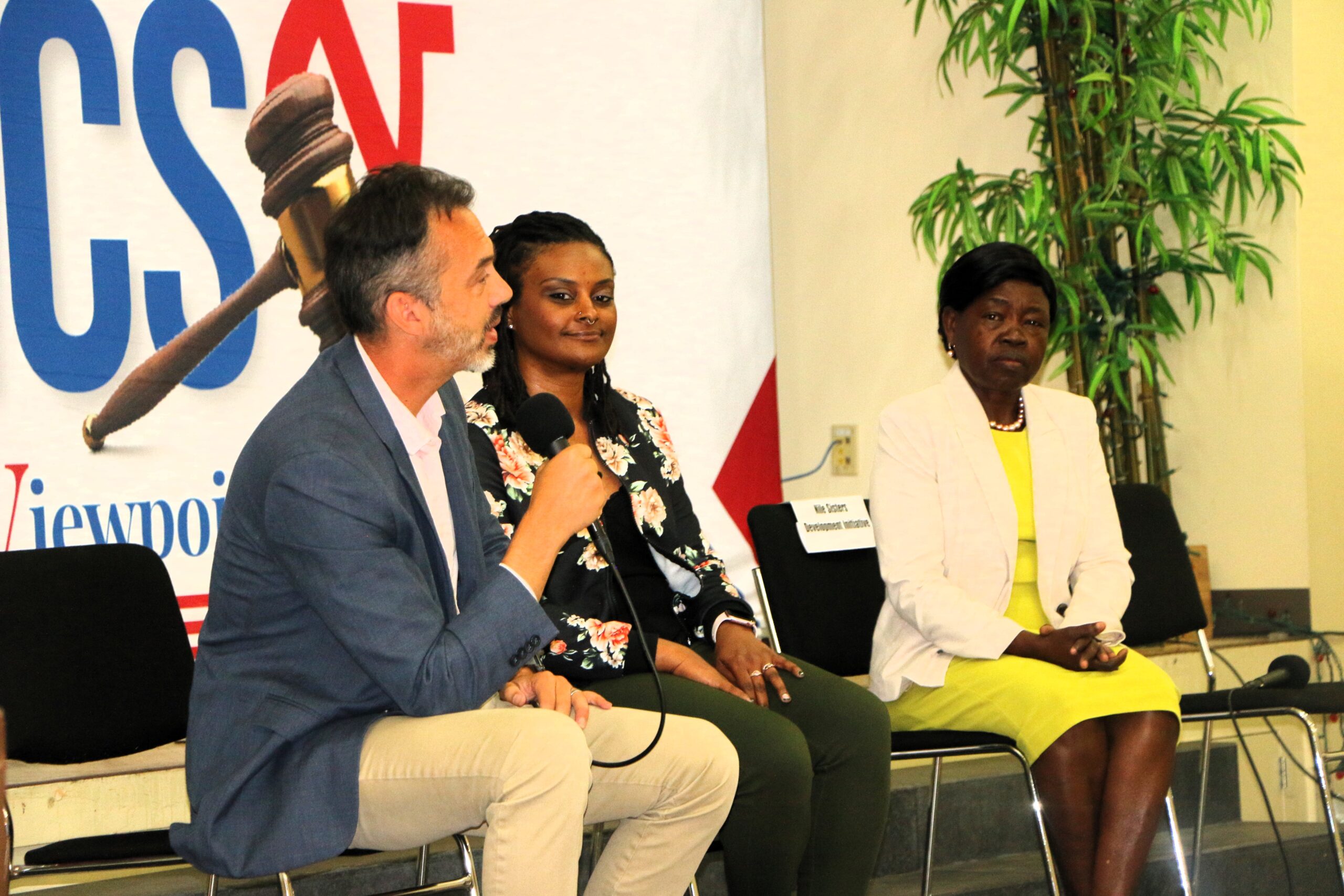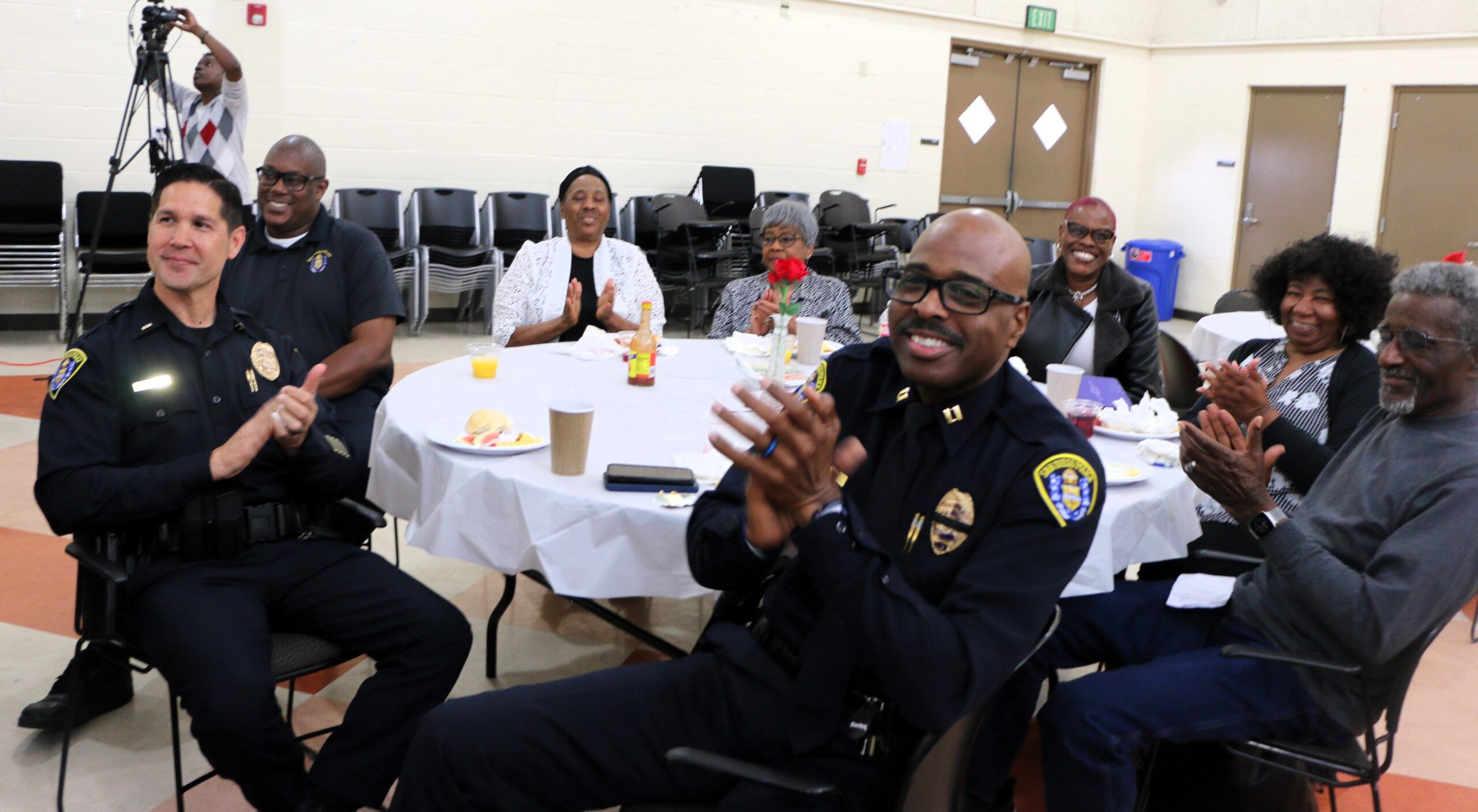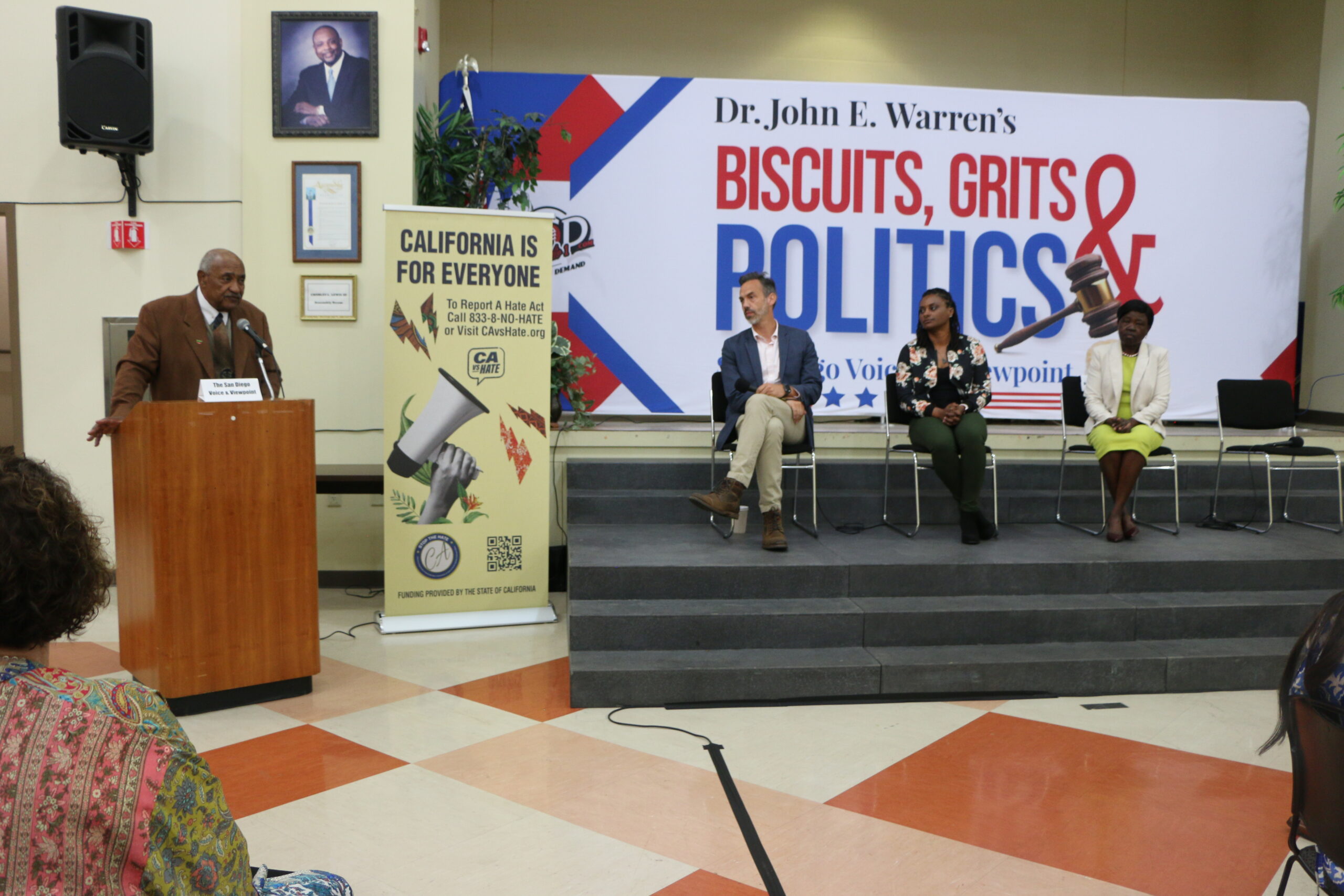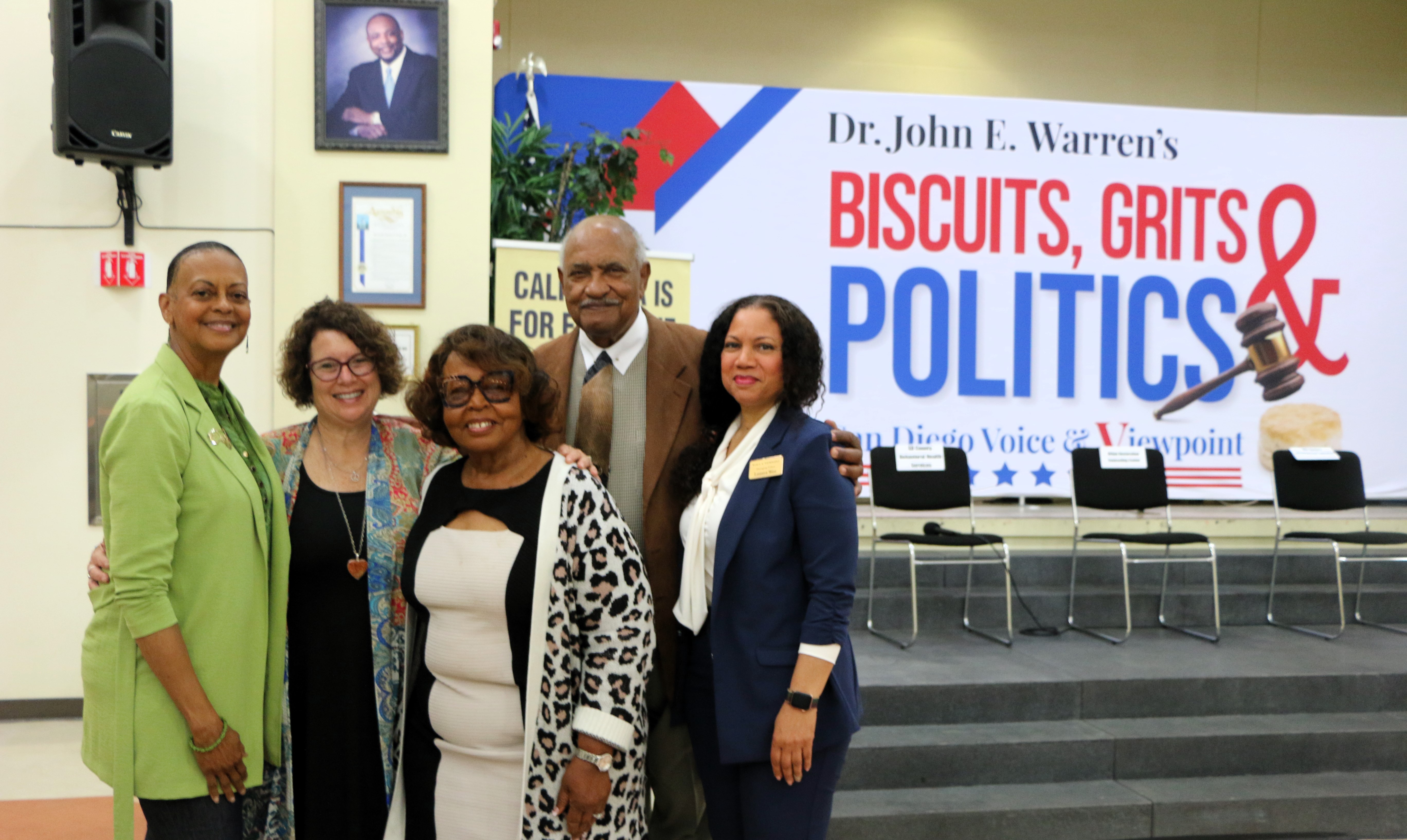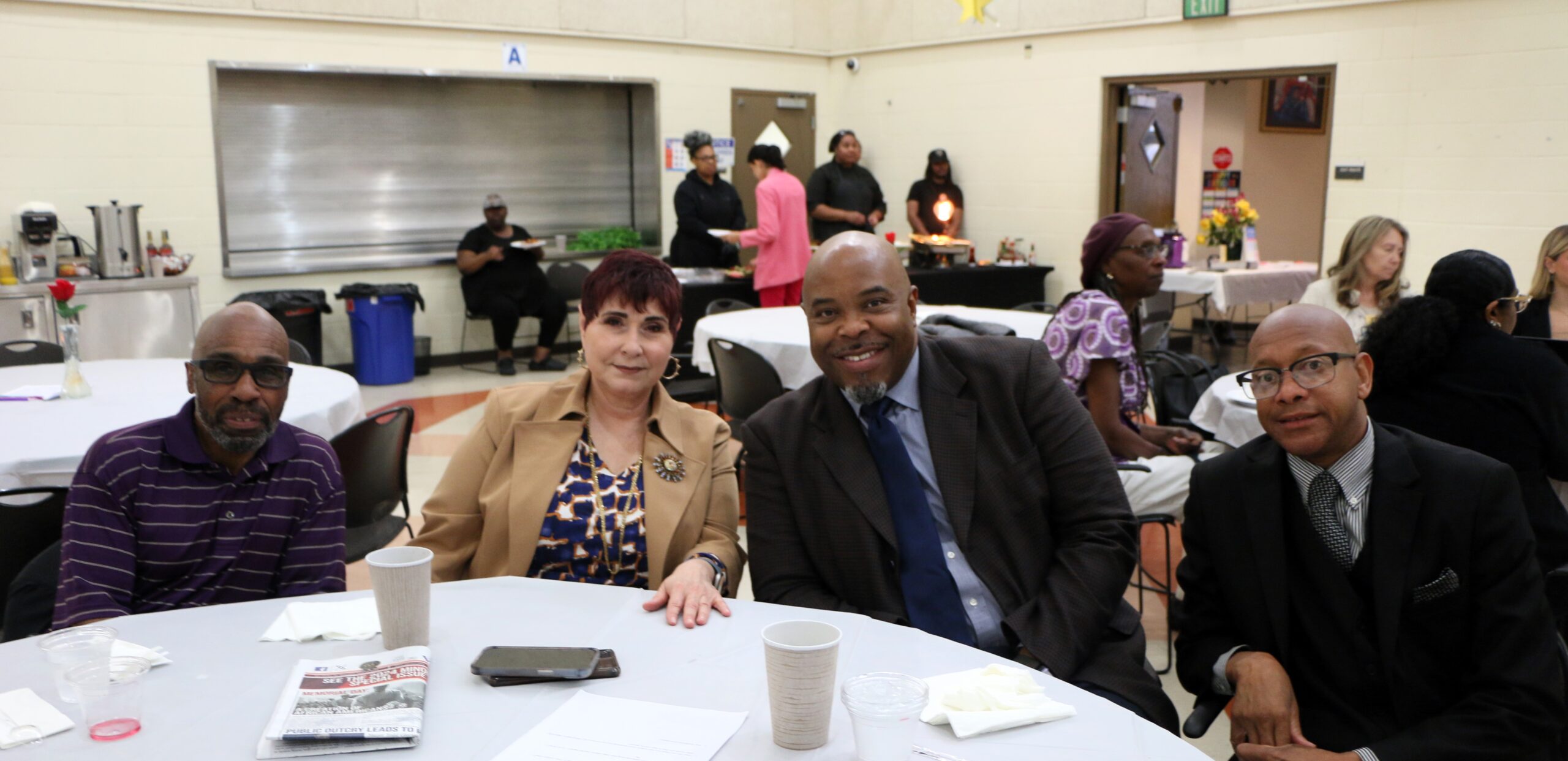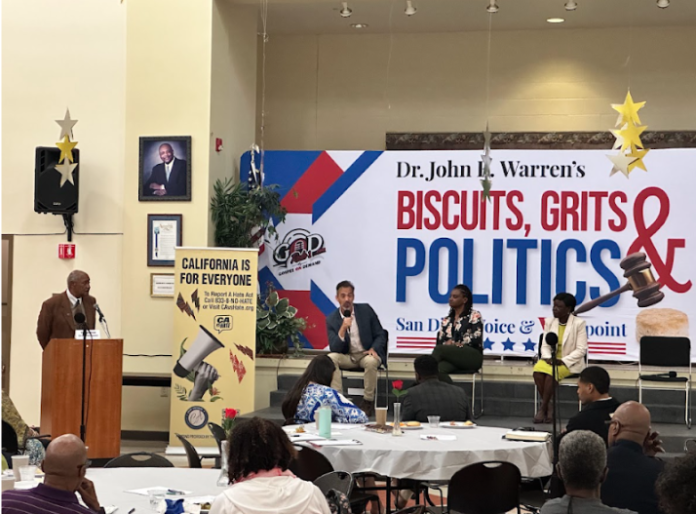
By Macy Meinhardt, Voice & Viewpoint Staff Writer and Emily Jenkins, Contributing Writer
Biscuits Grits and Politics is back with a bang this summer! Bright and early Tuesday morning, community members gathered at the George L. Stevens Center to enjoy a Voice & Viewpoint signature–discussions on critical issues in the community over coffee, fellowship, and of course, savory biscuits, grits, and catfish.
The panel-led discussion featured the County’s Director of Behavioral Health, Dr. Luke Bergmann; Co-Founder of Urban Restoration Counseling Center Janel King; and CEO of the Nile Sisters Development Initiative Elizabeth Lou.
“Very few people understand that there is a connection between behavioral and mental health issues, and the element of hate that is presented to the various groups that we look at,” said Publisher Dr. John E. Warren on the significance of the event.
Reported hate crimes in the City, for instance, went up by 74% in 2023, according to the latest report by the San Diego Police Department. Most of these crimes targeted individuals’ ethnicity. Input from these community leaders therefore underscore the urgent need to address and implement mental health services curated for communities that are often victims of hate crimes.
Kicking off the discussion, Bergmann spoke out about the need to destigmatize mental health care and merge this dialogue within the context of public healthcare overall. Posing the question, how can we make behavioral health care feel normal, something that is commonly talked about?
“Behavioral Healthcare is this thing that sits somewhere else [away from regular healthcare] It’s this strange thing. It’s got all this funky language that always seems to be changing,” said Bergmann.
However, Bergmann noted the way that mental health is stigmatized relates to the way minority communities have historically been stigmatized, which has laid the foundation for a profound disconnect.
In order to lessen the stigma, this has since created a demand for culturally representative mental health care providers that are based in the community to do this type of work. With high demand however, comes the need for more support from entities like the County to keep smaller CBO’s alive and running.
King’s work with Urban Restoration Counseling Center for instance, highlights this critical need. Founded in 2018 by King and Shanelle Johnson, the center began by providing no-cost mental health services to 50 minority patients in need. In 2023, their services took a massive increase, providing aid to over 400 individuals.
“We were inundated with Black and brown referrals and the two of us just couldn’t handle it anymore,” King said. She added that addressing intergenerational trauma is a crucial part of what they do in order to address hate.
“We understand that hate has been ingrained into the Black and brown communities bones… The things that [victims of hate] are told about themselves are often believed or they start to internalize it,” King said.
“So a huge part of what we do, when working with our clients, is to try to help them figure out who they are moving forward with the things that have happened to them in their lives [so they are] still able to live a happy and healthy life.”
In order to continue to support the work that King, and others do, Bergmann shared that the County Board of Supervisors has allocated $10 million aimed to ultimately connect CBO’s with public insurance in order to support a diverse workforce needed to make behavioral healthcare more accessible and representative.
Providing behavioral health services to the immigrant community is also a complex challenge that was shared at the event. Originally from South Sudan, President and CEO, Elizabeth Lou, of the Nile Sisters Development Initiative shared the challenges in navigating behavioral health while also learning the complex systems in America.
“When it comes to mental health, we the refugees, immigrants and underserved communities… face [difficulties] more than other people who may be born and raised here,” Lou said.
The initiative established a Behavioral and Mental Wellness Department in 2016, offering low-cost counseling services for individuals seeking treatments or diagnoses. In addition to the medical treatments, the initiative also provides training for those looking to become healthcare professionals. The services began out of a need for multilingual support designed with refugees and immigrants in mind.
From a refugee support center, to a full-time counselor, to a county health official, the panel at Biscuits, Grits and Politics was reflective of an optimistic future for minority health, despite a fractured present. Their vastly different backgrounds but similar vision for the improvement of community mental health demonstrated an inspiring path forward.
“There’s no way on this planet any of us can thrive if we don’t care about ourselves, if we have no self esteem,” King said. “A huge part of [addressing] hate is rebuilding that confidence in who they are, and giving them and their families the confidence to be able to step back into the world and say, ‘Even though this horrible thing has happened to me, I’m worth it.’”
This resource is supported in whole or in part by funding provided by the State of California, administered by the California State Library in partnership with the California Department of Social Services and the California Commission on Asian and Pacific Islander American Affairs as part of the Stop the Hate program. To report a hate incident or hate crime and get support, go to CA vs Hate.


